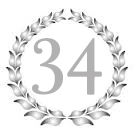The story of ANGELIQUE (African Grey (Psittacus erithacus erithacus)) and PICASSO (Blue fronted Amazon (Amazona aestiva)) travelling from Canada to the Netherlands… a complex relocation because both are CITES Birds.
The international movement of birds is never simple because there can be so many restrictions. The first concern is zoonoses (diseases that can be transmitted between birds and humans). Thus Avian Flu which has made some airlines and countries refuse birds. Psitticine birds (all the true parrot species) are also at risk of carrying Psittacosis.
All travelling birds will require veterinary certificates appropriate to the country of destination, as well as requiring CITES[1] export and import permits.
For all these certificates, the birds must be identified in some way, either with leg bands or with microchips.
Thus it was for ANGELIQUE and PICASSO. Both are CITES species and required firstly a Canadian CITES Export Permit. Until that was obtained, a corresponding Import Permit to Netherlands cannot be obtained. Both birds carried the US microchip of 10 digits, but the importer was told the 15-digit microchip was required, so each had a second microchip inserted.
Having taken weeks to assemble the necessary papers, the Dutch certificate recorded an error in the microchip number and even incorrectly identified the gender. This required a last minute amendment, only just available before the arrival of the birds.
Birds travelling to Europe must be isolated for at least 30 days prior to shipment at an address approved by the Government. This requires several government veterinarian visits: first to approve the premises, then to check the start of the isolation, followed by an intermediate visit during the 30 days, and finally the release from isolation for direct movement to the airport. By the time all this was complete the papers weighed more than the birds.
For transport, birds prefer to travel in semi-darkness and are very disturbed by any quick movements outside their cage. Thus the flight containers are covered in hessian (brown material).
Our commercial crates were modified to install an appropriate perch for the size of the feet of each bird. Food and water can be added during transport by fixing appropriate funnels on each side of the crate.
To avoid the birds from chewing on the brown material, it is covert inside with a metal mesh.
After all these precautions taken and finding an airline who will accept them, ANGELIQUE and PICASSO traveled from Montreal to Amsterdam yesterday.
In this event, the birds traveled very well and arrived safely at destination.
[1] CITES = Convention for the International Trade in Endangered Species.
—————————
From: Mark V.
Sent: December-23-15 5:23 AM
To: Tim Harris
Cc: Import of CITES Birds… Montreal-Netterlands
Subject: ANGELIQUE; PICASSO;
Hi Tim,
ANGELIQUE and PICASSO have arrived safe and sound.
They were so happy to see their owner, Mr. Wecxsteen.
Thank you so much for your great cooperation in this complex and difficult relocation,
Mark V.








